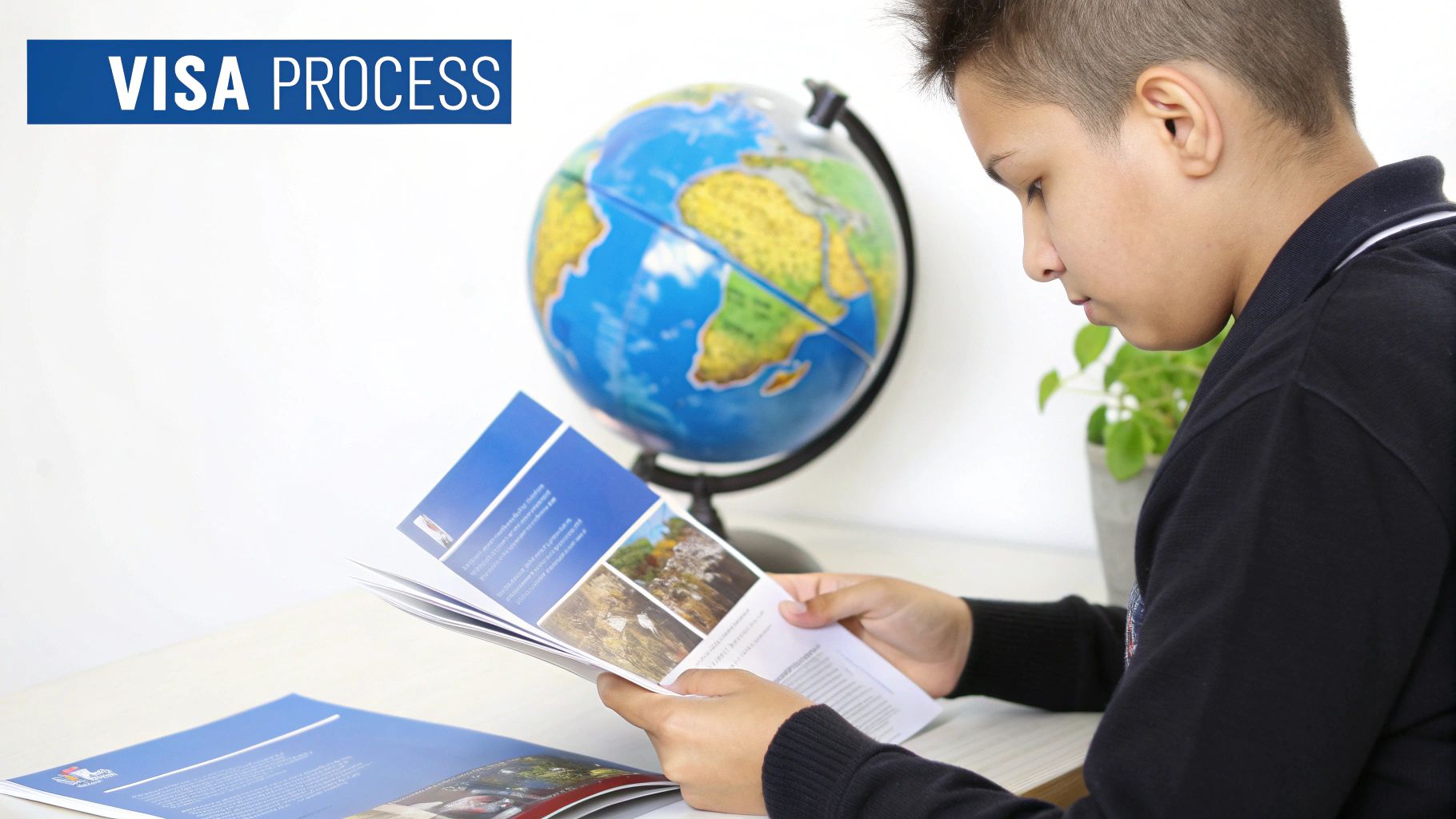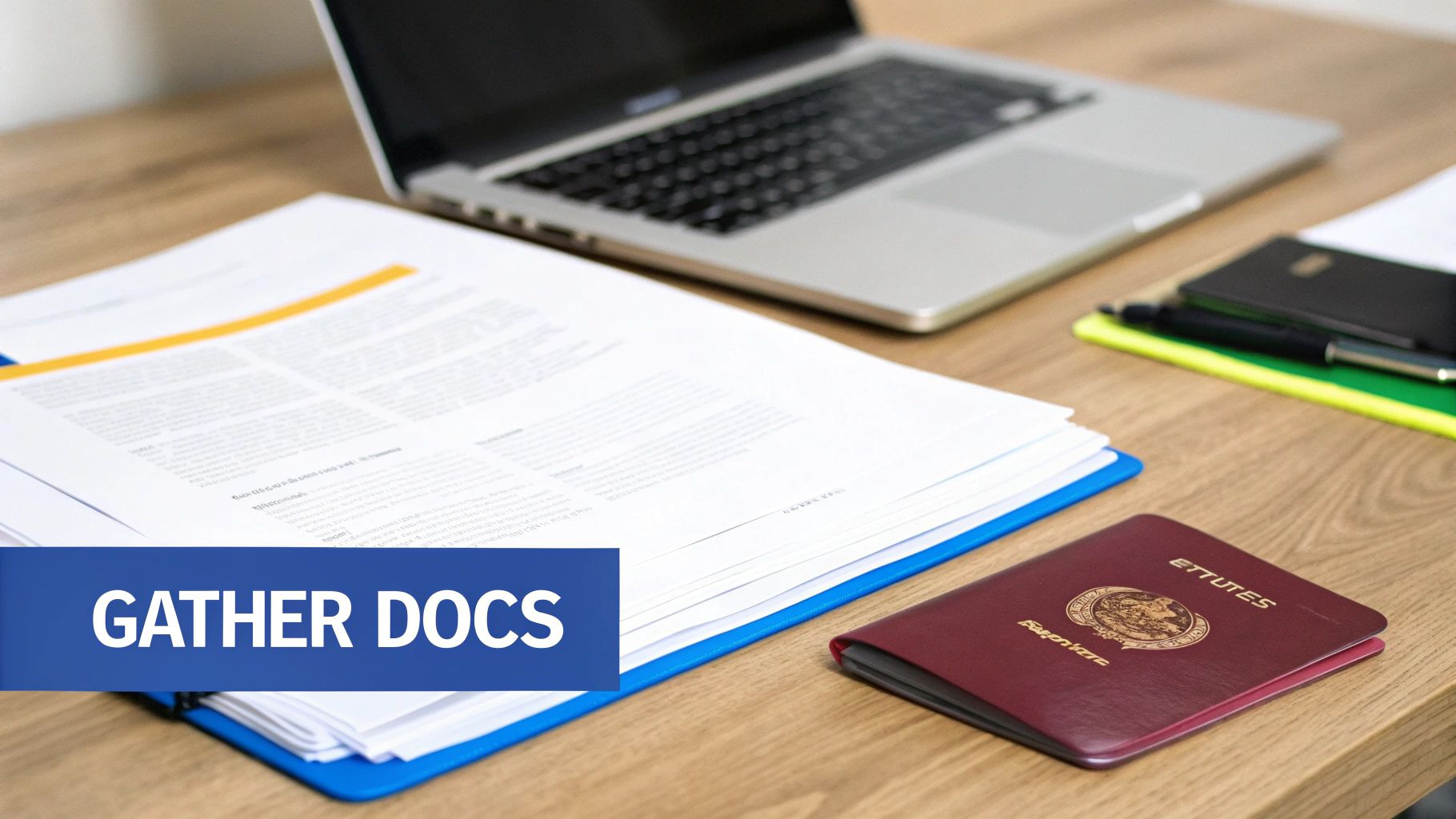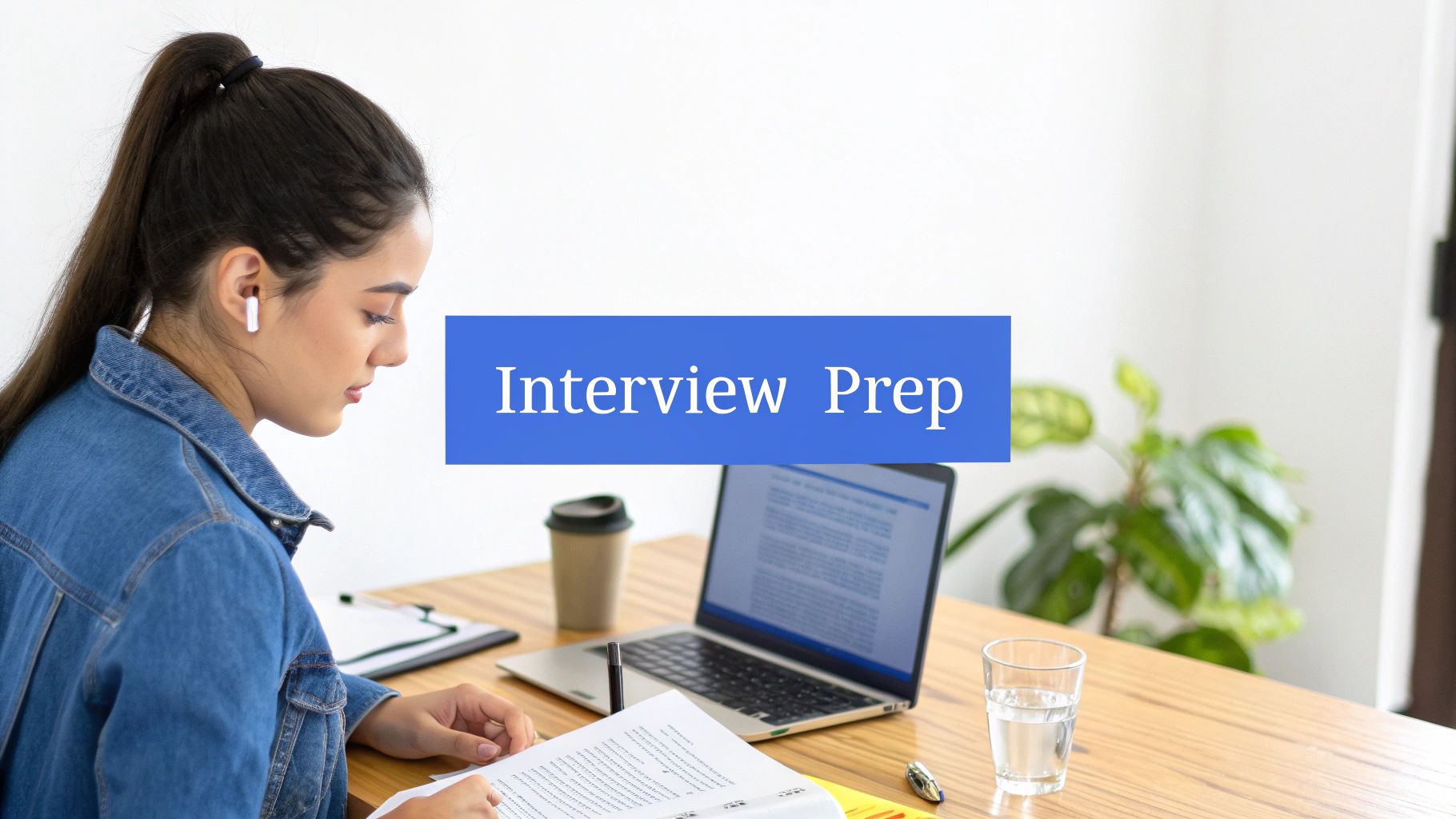Quick Guide: How to Apply for Student Visa

Navigating the Student Visa Landscape: Types That Match Your Goals

Selecting the right student visa is the first step in your international education journey. Think of it like choosing the right mode of transportation: a compact car suits a solo trip, while a van is better for a group. Similarly, different visas cater to various educational pursuits. This section helps you identify the visa that aligns with your academic objectives.
Understanding the F-1 Visa
The F-1 visa is designed for individuals pursuing academic programs in the United States, such as bachelor’s, master’s, or doctoral degrees at accredited universities or colleges. This visa permits academic studies and related activities, including on-campus employment. It’s ideal for those seeking a comprehensive educational experience. For instance, if you plan to study engineering or architecture, the F-1 visa is likely the best option. It also offers post-graduation Optional Practical Training (OPT), allowing you to gain practical work experience in your field.
Exploring the M-1 Visa
If your goal is vocational or non-academic training, the M-1 visa is the more suitable choice. This visa covers programs like culinary arts, cosmetology, or technical training. Consider it the practical counterpart to the F-1, focusing on specialized skill development. However, the M-1 visa typically provides fewer post-graduation work opportunities than the F-1. Therefore, if working in the U.S. after completing your program is a priority, the F-1 might be a more strategic option.
The J-1 Exchange Visitor Program
The J-1 visa facilitates exchange visitor programs, promoting cultural and educational exchange between the U.S. and other nations. These programs cover a wide range of activities, including academic studies, research, professional training, and cultural immersion. Unlike the F-1 and M-1 visas, the J-1 often includes a two-year home residency requirement. This mandates returning to your home country for two years after completing the program before applying for certain other U.S. visas. This requirement can significantly impact future plans, so careful consideration is essential. You might be interested in: UK Student Visa Requirements.
In Nigeria, the visa application process reflects global standards, with visa types shaping the specific procedures. Nigerian applicants, like other international students, are subject to global visa trends. Changes in visa issuances due to global events can influence application outcomes. For instance, security measures implemented after 9/11 impacted visa applications worldwide. Understanding these global dynamics offers valuable context for Nigerian applicants navigating the student visa process. Learn more about students and exchange visitors here. Choosing the correct visa type is crucial for a successful application.
Building Your Application Package That Gets Noticed

A successful student visa application requires more than just completed forms. It demands a compelling narrative that assures immigration officers of your genuine intentions as a student. This section explores how to create an application package that stands out, transforming a collection of documents into a persuasive and impactful presentation.
Securing A Strong Admission Letter
Your admission letter is the foundation of your application. It’s the official confirmation from your chosen institution, a vital signal to visa officers. A strong admission letter clearly states the program you are enrolled in, its duration, and the expected start and end dates. This information demonstrates your commitment to a structured academic pursuit.
Furthermore, ensure the letter is printed on official letterhead and includes the signature of the appropriate authority within the institution. This adds a layer of authenticity and strengthens the credibility of your application.
Completing Visa Forms With Precision
Accuracy and completeness are essential when completing visa forms. Even small errors can lead to rejection. Double-check every detail, ensuring all information is consistent with your supporting documents. For example, discrepancies between your stated program and the information in your admission letter can raise concerns.
Pay particular attention to any specific instructions for Nigerian applicants, as requirements may differ. This meticulous approach demonstrates your seriousness and thorough preparation.
Documenting Your Financial Capacity
You must demonstrate sufficient funds to cover your tuition fees and living expenses. This involves providing clear and organized financial documentation, such as bank statements, sponsorship letters, or scholarship awards. Structure these documents logically to present a transparent overview of your financial stability.
For instance, if you have multiple sponsors, include a separate letter from each one. These letters should outline their relationship to you and their commitment to supporting your education, proactively addressing any potential questions about funding.
Showcasing Your Academic Achievements
Your academic history plays a crucial role in convincing visa officers of your genuine interest in studying. Present your academic transcripts, certificates, and test scores strategically to highlight your strengths. For Nigerians applying to international universities, standardized test scores like the WAEC, NECO, or TOEFL/IELTS are particularly important.
Including letters of recommendation from teachers or professors further enhances your academic profile. These letters offer valuable third-party insights into your capabilities and potential.
To help you prepare, here’s a table summarizing the essential documents:
Essential Documents for Student Visa Application
A comprehensive checklist of required and supporting documents needed for a successful student visa application.
| Document Type | Purpose | Requirements | Tips for Preparation |
|---|---|---|---|
| Admission Letter | Confirms acceptance into the program | Official letterhead, signature, program details, duration | Ensure accuracy and consistency with other documents |
| Visa Application Forms | Official application for the visa | Completed accurately and thoroughly | Double-check all information and follow specific instructions |
| Financial Documents | Proof of sufficient funds | Bank statements, sponsorship letters, scholarship awards | Organize logically and provide clear evidence of financial stability |
| Academic Transcripts and Certificates | Demonstrates academic history | Official transcripts and certificates | Highlight academic strengths and include relevant test scores (WAEC, NECO, TOEFL/IELTS) |
| Recommendation Letters | Provides third-party assessment | Letters from teachers or professors | Showcase academic abilities and potential |
| Passport | Proof of identity and nationality | Valid passport with sufficient remaining validity | Ensure your passport is valid and has enough blank pages |
This table provides a quick reference to help you gather and prepare all the necessary documents for your student visa application. Ensuring you have each item completed correctly will streamline the process.
Organizing Your Documents: A Cohesive Story
The organization of your documents is crucial. A well-structured application package creates a clear narrative of your academic journey and your commitment to studying. Use dividers to separate different sections, creating a logical flow that is easy for visa officers to navigate.
This organized presentation reflects professionalism and respect for the process, further reinforcing your dedication to your studies. It allows officers to quickly grasp the key elements of your application, making a positive and lasting impression.
Remember, your application is not simply a collection of forms and documents; it’s a representation of you and your aspirations. By carefully constructing a strong application package, you significantly improve your chances of obtaining your student visa.
Mastering the Visa Interview: What Actually Works

The visa interview represents the final stage of your student visa application. It’s the culmination of your efforts, the moment where you can personally present your case to a consular officer. This step is vital. Even with impeccable documentation, a poorly executed interview can result in rejection. This section explores effective strategies to help you confidently navigate this critical process.
Understanding the Psychology of Visa Interviews
Visa officers are trained to determine your genuine intent as a student. They seek evidence confirming your primary reason for entering the country is education, not immigration. This involves demonstrating clear academic objectives, strong ties to Nigeria, and concrete plans to return after completing your studies. Consider it similar to a job interview: you need to persuade the “employer” (the consular officer) that you are the ideal “candidate” for a visa.
Crafting Authentic Responses
Your answers should be concise, clear, and truthful. Avoid rehearsed responses, which often come across as artificial and unconvincing. Instead, concentrate on expressing genuine enthusiasm for your chosen program and how it aligns with your long-term career goals. For instance, articulate how a master’s in public health from a U.S. university will enable you to address specific healthcare challenges in Nigeria.
Projecting Credibility Through Presentation
Your demeanor is important. Maintain eye contact, offer a firm handshake, and dress professionally. These nonverbal cues convey confidence and respect. Also, be ready to discuss your academic plans in detail, showcasing a comprehensive understanding of your chosen program. This reinforces your academic commitment. The student visa application process in Nigeria carries significant weight due to the growing number of Nigerian students seeking education abroad. In fact, Nigeria leads African countries sending students to the United States, with 20,029 students recorded in recent years. This highlights the significance of a successful visa interview. Find more detailed statistics here.
Addressing Concerns Proactively
Visa officers are mindful of potential overstay risks. Clearly stating your ties to Nigeria—family, property, employment—is essential. Explain your reasons for returning home after graduation, emphasizing your commitment to contributing to your community and Nigeria’s development. This assures the officer of your intention to respect the visa terms.
Analyzing Real Interview Scenarios
Consider how one successful applicant effectively communicated her post-graduation plans: When questioned about her intentions after completing her studies, she confidently stated her plan to return to Nigeria and utilize her new skills in her family’s business. She supported this by outlining her specific role within the company and how her U.S. degree would enhance her contribution. This demonstrated a concrete and believable post-graduation plan, addressing a key concern of visa officers. Similarly, emphasizing family ties or involvement in community projects in Nigeria can bolster your application.
Mastering the visa interview requires preparation, impactful presentation, and a clear expression of your academic and personal objectives. By employing these strategies, you can confidently present yourself as a genuine student, significantly improving your prospects of visa approval.
Avoiding Rejection Traps: Strategic Solutions That Work

Securing a student visa can feel overwhelming. One misstep can lead to rejection. This section offers strategic solutions to navigate common pitfalls and boost your chances of student visa approval. We’ll examine specific rejection patterns and explore proven strategies to overcome them.
Transforming Insufficient Financial Documentation
Financial stability is paramount for visa approval. Think of your finances as the foundation of your application. A weak foundation can jeopardize everything. Instead of simply submitting bank statements, craft a compelling financial narrative.
This involves clearly demonstrating the source, availability, and sufficiency of your funds to cover tuition and living expenses. For instance, if you have a sponsor, a detailed letter from them outlining their financial capacity and commitment to supporting your education can significantly bolster your application.
Sharpening Vague Study Plans
Visa officers look for focused academic narratives. A vague study plan can signal a lack of genuine academic intent. Think of your study plan as a roadmap. A poorly defined route can lead you astray.
Instead of generic statements, articulate your specific academic goals and explain how your chosen program aligns with your long-term career aspirations. This demonstrates clear purpose and reinforces your student intent.
Strengthening Weak Home Country Ties
Demonstrating strong ties to Nigeria is essential. These ties act as an assurance of your intention to return after your studies. Weak ties can raise red flags.
Actively participating in community projects, owning property, or having family commitments in Nigeria strengthens your ties and mitigates the perceived risk of overstaying your visa. This underscores your commitment to returning home after completing your studies.
Demonstrating English Proficiency Effectively
While TOEFL and IELTS scores are important, they are only one piece of the puzzle. Visa officers evaluate your overall communication ability. Presenting a comprehensive picture of your language skills is crucial.
Actively engaging in English-speaking environments, participating in online forums, or providing evidence of prior studies conducted in English can further showcase your fluency. This creates a more well-rounded view of your language abilities.
Addressing Prior Visa Rejections
Previous rejections can be a hurdle, but they don’t have to be a deal-breaker. View them as opportunities for growth. Honestly address the reasons for any prior rejections and demonstrate how you’ve rectified those issues in your current application.
This proactive approach shows maturity and a commitment to improving. You may find this helpful: Visa Rejection Reasons. This resource provides valuable insights into avoiding common pitfalls.
Structuring Your Application Strategically
Organize your documents to tell a cohesive story, guiding the officer through your academic journey. A well-structured application makes it easier for visa officers to understand your motivations and intentions.
Use dividers, clear labels, and a logical flow to create a user-friendly application. This streamlines the review process and increases your chances of a positive outcome. A clear and organized application reinforces your credibility.
To help you prepare a strong application, review the table below outlining common rejection reasons and preventative strategies:
To help applicants navigate the complexities of the visa application process, we have compiled a table highlighting common rejection reasons, their significance, and proactive strategies to mitigate them.
| Rejection Reason | Why It Matters | Prevention Strategy | Success Example |
|---|---|---|---|
| Insufficient Financial Documentation | Demonstrates ability to support yourself during studies | Provide comprehensive financial records, including bank statements, sponsorship letters, and proof of assets | Applicant included a detailed affidavit of support from their sponsor, outlining their financial capacity and commitment to funding the student’s education. |
| Vague Study Plans | Shows genuine academic intent and purpose | Clearly articulate your academic goals, program choice rationale, and how it aligns with career aspirations | Applicant connected their chosen program to their long-term career goals, demonstrating a clear academic path and purpose. |
| Weak Home Country Ties | Indicates likelihood of returning home after studies | Showcase strong ties to Nigeria through community involvement, property ownership, family commitments, and employment history | Applicant provided documentation of family business ownership and active involvement in local community organizations. |
| Lack of English Proficiency | Essential for academic success and integration | Submit strong TOEFL/IELTS scores, supplement with evidence of English language usage (e.g., online forums, prior studies in English) | Applicant supplemented their IELTS score with certificates from online English courses and letters of recommendation from English-speaking professors. |
| Prior Visa Rejections | Raises concerns about eligibility | Address previous rejection reasons honestly, explain how you’ve resolved those issues, and demonstrate improvements in your current application | Applicant acknowledged their previous rejection due to insufficient funds and provided updated financial documentation showing significantly improved financial stability. |
This table summarizes key strategies to avoid common visa rejection reasons. By addressing these areas proactively, you can significantly strengthen your application.
By addressing these common pitfalls with strategic solutions, you can significantly improve your student visa application and increase your chances of achieving your international education goals. Proactive preparation is the key to success. Addressing potential weaknesses head-on is the most effective way to avoid rejection.
Country-Specific Strategies: Tailoring Your Approach For Success
Applying for a student visa can feel like navigating a complex maze. The route to the U.S. differs significantly from the path to the UK, Canada, or Australia. This section helps you tailor your student visa application to the specific requirements of your chosen country.
Deciphering Country-Specific Requirements
Each country has its own unique set of rules and preferences. The UK, for instance, might prioritize applicants with strong English language proficiency, often demonstrated through certifications like IELTS. Canada may place more emphasis on your ties to Nigeria, seeking assurance that you intend to return home after completing your studies. Australia, on the other hand, could focus heavily on the financial aspects of your application, requiring meticulous proof of funds.
Unwritten Expectations and Hidden Preferences
Beyond the official requirements, understanding the subtle, unwritten expectations can be crucial. For example, visa officers in the U.S. might closely examine the alignment between your stated study plans and your long-term career aspirations. They want to confirm your intentions are genuinely academic. Recognizing these nuances can significantly impact your application’s outcome. Read also: Canada Student Visa Requirement.
Application Timelines, Documentation, and Interviews
Application timelines can vary considerably. Some countries, such as Canada, have adopted streamlined online processes. Others, like the U.S., might involve longer processing times and may require in-person interviews. The required supporting documents can also differ significantly in type and volume. Adapting your approach to each country’s specific procedures is paramount.
Approval Rates and Special Pathways
Some countries may have higher approval rates for Nigerian students applying to particular programs. For instance, certain STEM (Science, Technology, Engineering, and Mathematics) fields might offer expedited processing or preferential treatment in countries experiencing skill shortages. Researching these opportunities can be advantageous.
Fees and Processing Times
Processing fees and timelines can also differ significantly. Some countries might offer expedited processing for an extra fee, while others have standard processing times that can stretch for several months. Understanding these logistical factors is essential for effective planning. While specific data on Nigerian student visa applications may be limited, reviewing broader nonimmigrant visa statistics can provide helpful context. The U.S. Department of State publishes yearly reports on nonimmigrant visa issuances, including student visas: https://travel.state.gov/content/travel/en/legal/visa-law0/visa-statistics/nonimmigrant-visa-statistics.html
Bilateral Relationships and Approval Patterns
The diplomatic relationship between Nigeria and your chosen study destination can also influence approval patterns. A strong bilateral relationship often leads to smoother visa processes and potentially higher approval rates. Being aware of these geopolitical dynamics can be beneficial.
By tailoring your application to each country’s unique context, you significantly improve your chances of securing your student visa and beginning your international education journey.
From Approval to Arrival: Critical Next Steps for Success
Securing your student visa is a major accomplishment, but the journey doesn’t end there. It’s comparable to receiving a university acceptance letter – enrollment, housing, and finances still need attention before classes begin. Your visa approval is just the first step; several critical post-approval steps remain. This section will guide you through this vital phase, ensuring a smooth transition to your academic life abroad.
Securing Suitable Accommodation
Finding suitable housing is paramount. Consider your budget, proximity to campus, and personal preferences. University dormitories are a convenient, often cost-effective choice, especially for first-year students. Dorm life also provides a built-in social network, helping you connect with peers.
Off-campus housing options, such as shared apartments or private rentals, offer greater independence. Websites like NairaBet, popular in Nigeria, often list available properties. Remember to factor in additional costs like utilities and transportation when budgeting.
Navigating International Health Insurance
Having adequate health insurance is crucial. Compare various policies, paying close attention to coverage details, deductibles, and network providers. Some universities offer mandatory health insurance plans for international students, often providing convenient access to on-campus healthcare services.
However, exploring independent insurance options might offer more personalized coverage at competitive prices. Ensure your chosen plan meets your visa requirements and your host country’s regulations.
Managing Your Finances Wisely
Effective financial management is essential for a successful study abroad experience. Opening a student bank account in your host country simplifies transactions and helps manage your finances efficiently. Familiarize yourself with local currency exchange rates and banking practices to avoid unnecessary fees.
Creating an emergency fund is highly recommended to cover unforeseen expenses, such as medical emergencies or travel disruptions. This financial safety net provides peace of mind, allowing you to focus on your studies.
Registration and Orientation: Essential First Steps
Completing university registration and attending orientation programs is vital for maintaining your visa status. These programs provide essential information regarding academic policies, student support services, and immigration regulations.
Failing to attend these mandatory sessions can jeopardize your visa, much like missing a connecting flight can disrupt your entire journey. Orientation programs also offer invaluable networking opportunities with fellow students and faculty.
By addressing these critical post-approval steps, you can confidently begin your international education journey, ensuring a smooth transition. Plan ahead, stay organized, and utilize available resources to maximize your study abroad experience.
Ready for the next step? JapaChat, a leading AI immigration expert platform in Nigeria, offers personalized guidance, up-to-date information, and interactive support to empower Nigerians pursuing international opportunities. Visit JapaChat today to learn more and confidently plan your relocation.

Leave a Reply